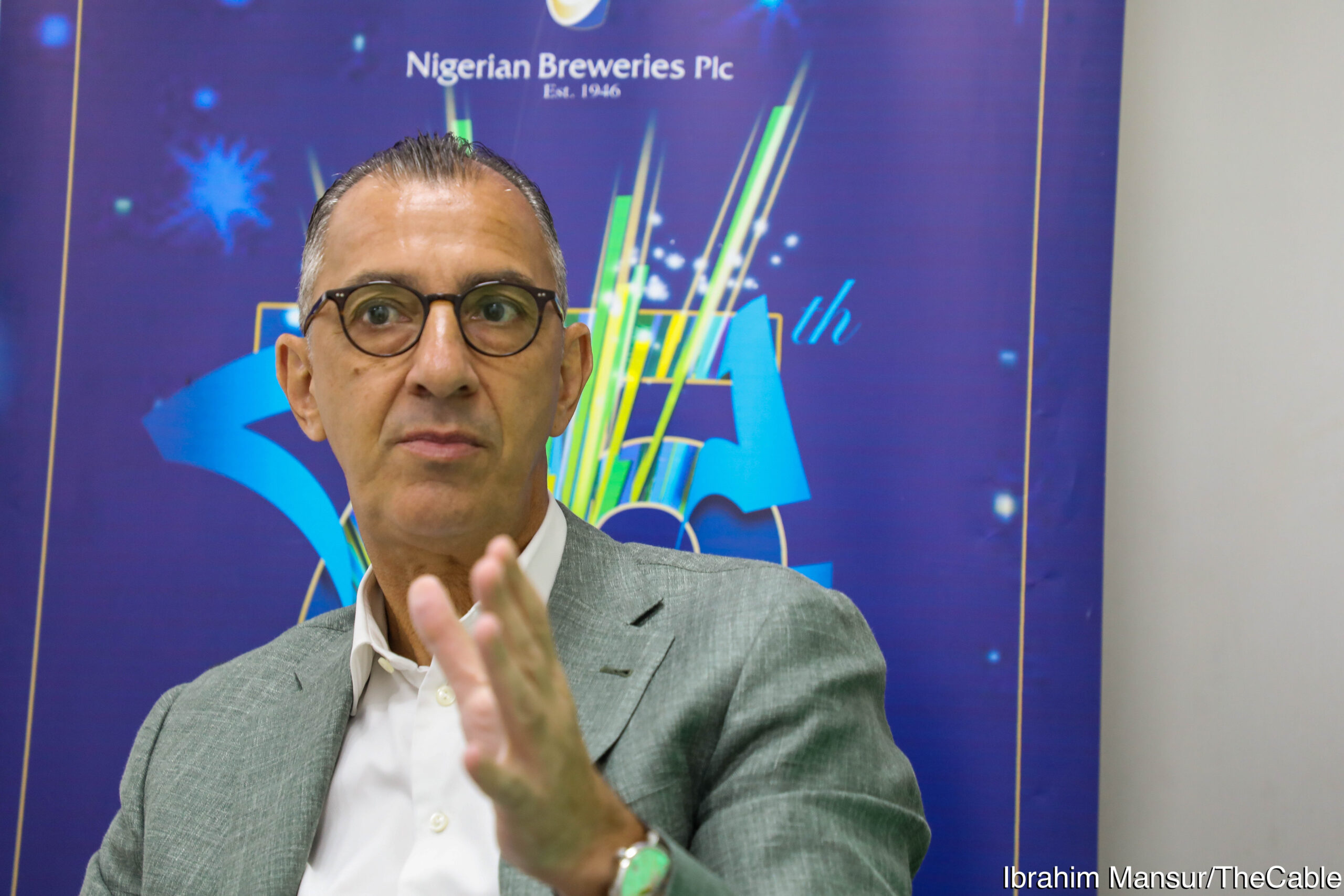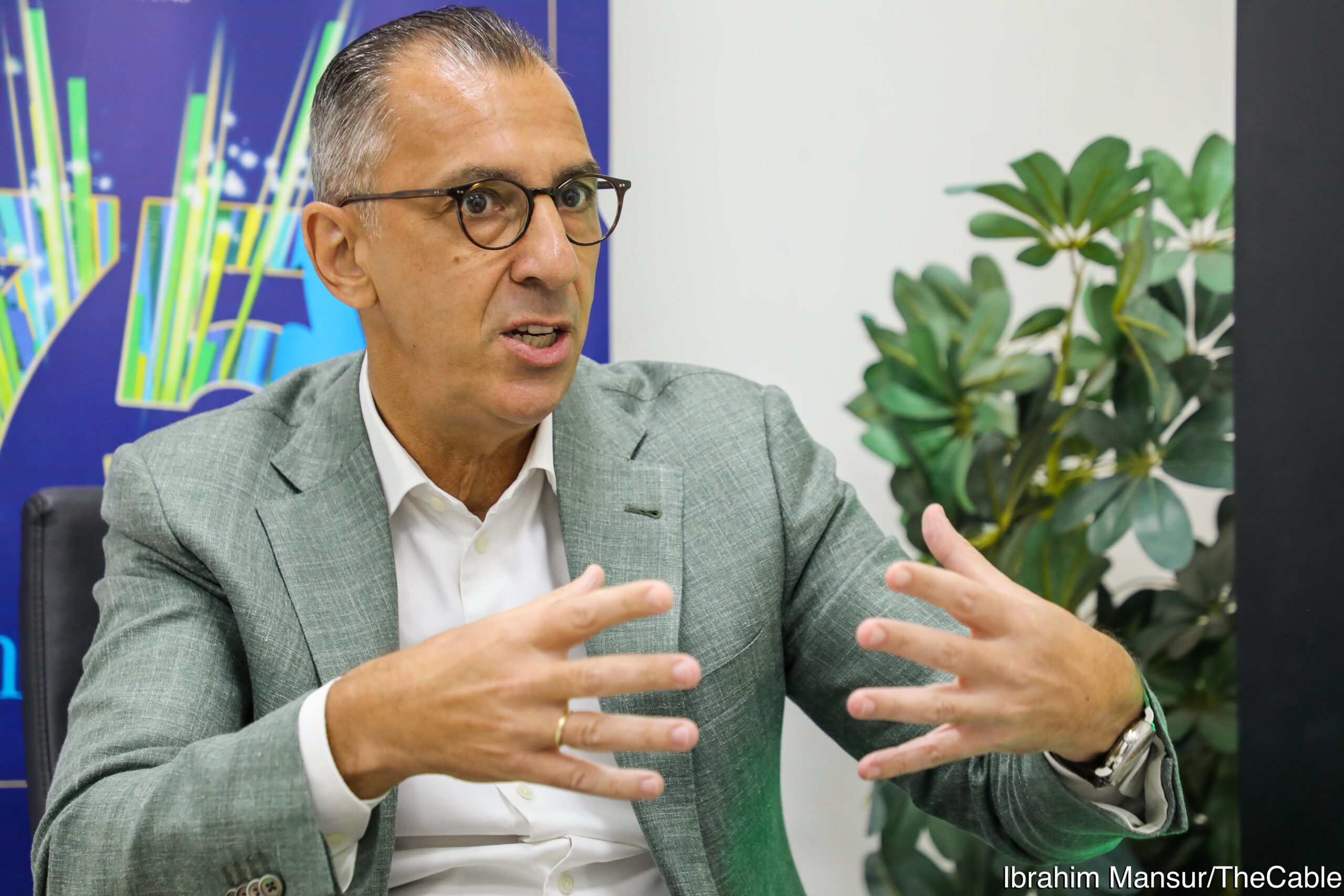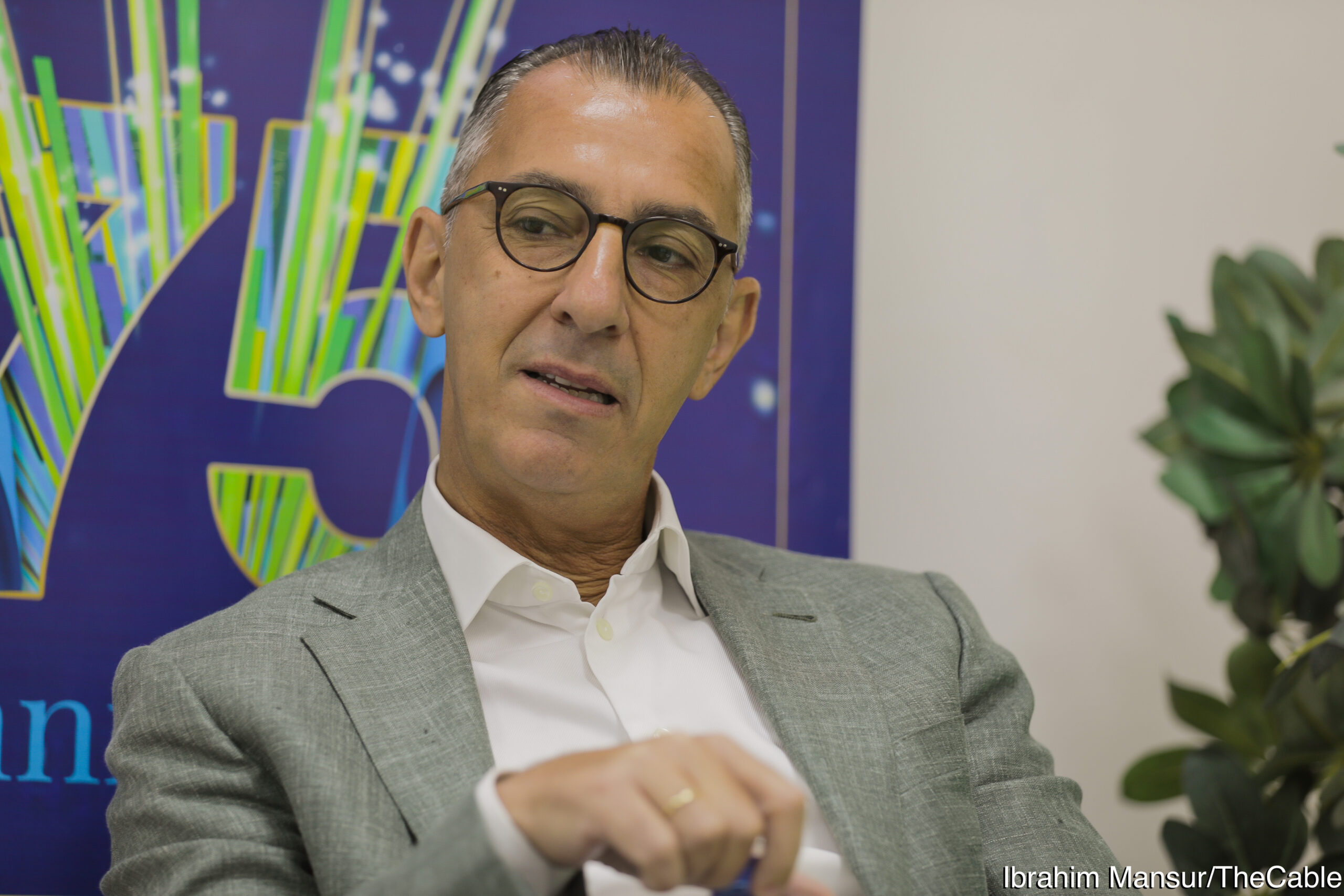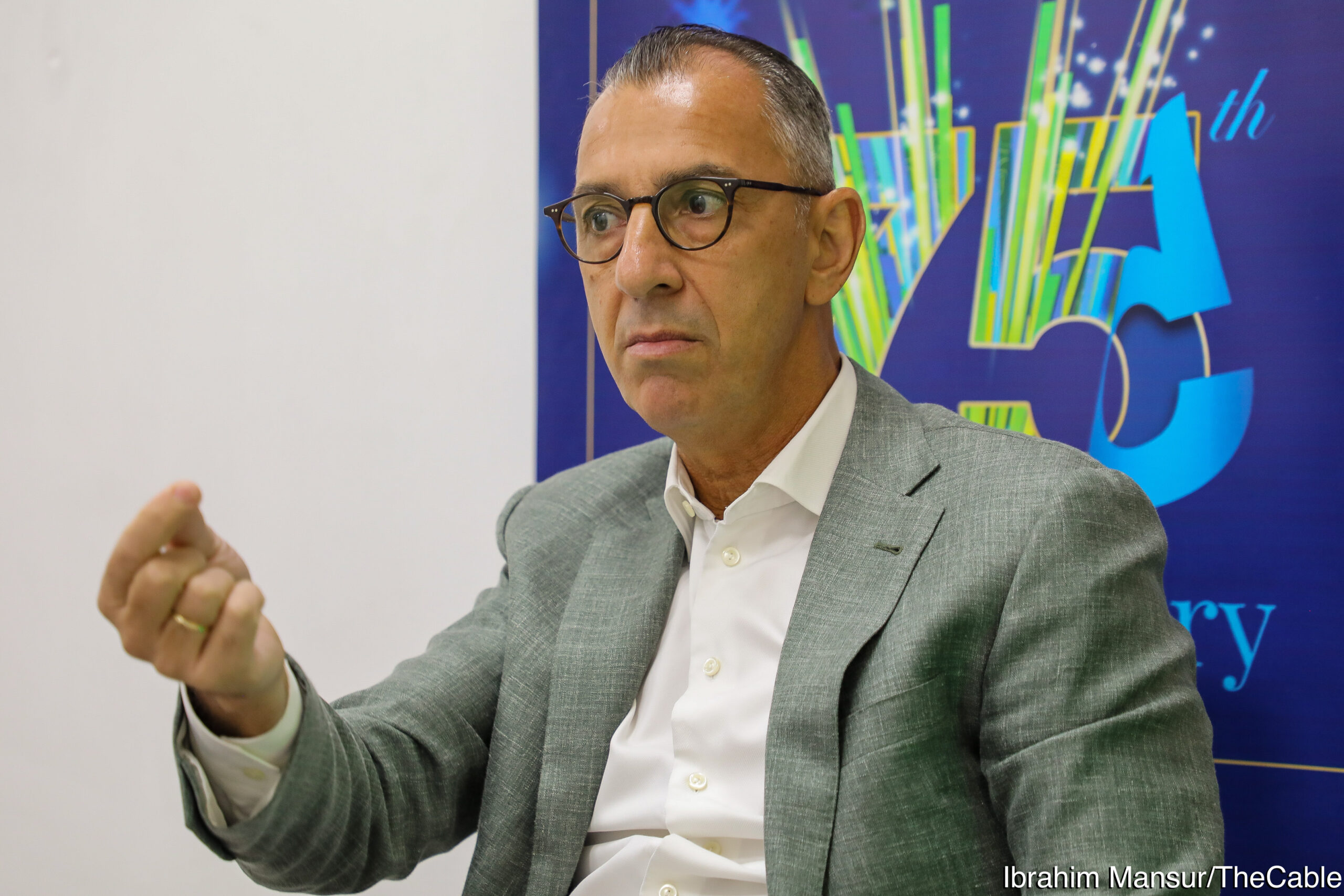The Russia-Ukraine war has disrupted the global supply chain, pushed oil prices to the rooftop and caused a spike in inflation across the globe. The effects continue to undermine businesses — in terms of production, cost, and sourcing of required raw materials. In this interview with TheCable, Hans Essaadi, managing director and chief executive officer (CEO) of Nigerian Breweries (NB) Plc, shares insights into how the company is navigating the global headwinds, Nigeria’s business environment and tax regime in the beer industry.
TheCable: What are Nigerian Breweries (NB) success factors in the last 75 years?

Hans Essaadi: To start somewhere, it is the people, the creativity and the resilience of the Nigerian Breweries team. Over the last 75 years, (which is a considerable legacy) we’ve had many challenges along the way — most of them well contained thanks to the resilience of the team.
Advertisement
I think it’s vital to mention HEINEKEN who are our significant shareholder and we’ve also benefited from them. With over 165 breweries in 70 countries, we are part of a global corporation and this provides us with access to best practices and access to the right specialists and experts who work with us to weather any storm. I think that has made us what we are today.
We also create great products, take them to the consumers, and they like them. Otherwise, there is no sale or revenue. This is what we’ve done with brands for decades and generations, especially the Star brand, most notably, and the whole portfolio of brands too
TheCable: NB has been recording a growth trajectory. How do you intend to keep pace with this despite global headwinds?
Advertisement
Essaadi: It is always great to talk about success, but how did you get there? The critical factor is the kind of brands you put in front of the consumer. We make sure we put quality beer in front of the consumer. It is also important to realize that the consumers have changed over the years. We must evolve. It is not the biggest but the most adaptable company that wins and continues to win. Over the years, we have made quite significant changes to our portfolio in response to the market. Not many have heard about Life and Goldberg until three years ago.
TheCable: Is this a way you are responding to the competition?

Essaadi: It is not responding to competition but listening to consumers. There’s a big difference. Now, what we have to be very honest that the competitive environment in Nigeria has changed. It has become more competitive. This is not bad as it puts every player on their toes. But we have to listen to consumers.
Advertisement
TheCable: What is your current market share?
Essaadi: We cannot disclose, but we’re leading in Beer, some Lager, and Malt significantly. We are a challenger in Stout, so we’re big enough. We lead in quite a few segments, but we’re not leading everywhere.
TheCable: What is your take on the recent N10 excise duty introduced by the government?
Essaadi: As members of the Manufacturers Association of Nigeria, we have engaged, and we will continue to engage with the government on issues that affect the manufacturing industry such as this one.
Advertisement
We are well abreast of the state of Nigeria’s economy and the urgent need to boost the revenue profile of the government. This, we understand is critical to addressing the recurrent budget deficit and supporting the government in discharging its obligations to the citizens.
However, an excise tax is a consumption tax in the end. Macroeconomic indices and purchasing power of Nigerian consumers have not improved over the years but have been further worsened by the impact of the COVID-19 pandemic. Non-alcoholic drinks have formed part of people’s daily meals and when consumed responsibly form part of a balanced lifestyle. If it is prized beyond the reach of Nigerians, we will be inflicting more hardship on them
Advertisement
TheCable: Let’s talk about difficulties you face as a business in Nigeria. There is insecurity, forex and exchange rate, and the Russia-Ukraine war. How have you been able to overcome it?

Advertisement
Essaadi: They are all affecting business, but the essential thing is how you overcome them because there are challenges, and it will continue to be the case. We were coming from COVID-19 and stumbled into the next crisis of the Russia-Ukraine war. Malt and barley form a significant part of our production; 25 per cent of it comes from Ukraine and Russia. This is a considerable challenge.
Commodity prices generally are moving up. Locally, the prices of diesel and gas we use to operate our facilities have gone up. When you wake up in the morning, there are lots of challenges. But as manufacturers, we have to overcome by being ahead of the game. We see things coming, prices going up, and we can purchase early. We use sorghum quite significantly in our products, and we do this for local sourcing purposes and to make sure we have availability of the materials for production. We don’t know what will happen next in the malt and barley market but we are prepared. We have a resilient team, we are creative, we are positive, and we always overcome with all this positive energy.
Advertisement
TheCable: What are you doing for local sourcing to balance the production?
Essaadi: We are developing recipes with viable local alternatives that we can use. For example, we use sorghum along with malted barley for some of our products which are doing well in the market, such as Goldberg and 33 export lager beer. That is one example. We have different peptides; we still have returnable bottles or PET if there’s no aluminium to make the cans. So we try to make sure that we have a portfolio of products and packaging that makes it easy to develop alternatives and weather any storm. But this is not all easy.
TheCable: What percentage is your local sourcing?
Essaadi: Presently, 50 per cent, which in itself, if you look at all materials that we use, is very laudable. The challenge of availability in Nigeria is that many things are not available. I think it’s a fantastic achievement from where we were some years ago. Do we want to do more? Yes.
TheCable: Inflation is at its peak now at over 16%. How are you working to limit the impact on consumers?

Essaadi: We recognise that the pressure on consumer purchasing power is one of the main challenges now. The combination of naira devaluation and inflation makes it hard when you are thinking of affordability.
So we try to minimise as much as possible to keep our products affordable while protecting the operating margin of our business. We do this by optimizing purchases and being more efficient, and we can benefit from the ecosystem as we have been here for a long time. So, despite inflation, if we can make sure that our input cost is under control, we do not need to pass on the inflation to the consumer. But if you go to supermarkets, prices change every day, so it is challenging to warehouse all the costs. So, we hope for policies that will help control the devaluation of the naira and combat inflation.
Let me also state that we are confident that the longer-term fundamentals of the Nigerian beer market remain positive. In the medium term, Nigeria’s young and growing population; a growing middle class; continued rising levels of urbanization and improving political stability, would support the beer market growth.
TheCable: What is the outcome of your discussion with FG on the growth of the industry
Essaadi: So the starting point is that Nigeria is a big country. Yes. And it’s a big country that’s growing very fast. If you look at the demographics, Nigeria will be the third-largest country in population by 2040. It will surpass the US. So this is a massive country that we have nine breweries across the country if you look at today’s footprint.
But we must grow our footprint. Because today we’re talking about 220 million people. If that increases to 400, we need more production capacity to do this, and that cannot be locally manufactured. We need to import from different locations in Europe and Asia to get our equipment. Foreign exchange is the most critical part of the engagement. We need hard currency to be able to purchase equipment to bring to the country; we cannot pay in naira.
That’s the engagement with the government and the Central Bank governor. Nigerian Breweries and HEINEKEN are here for the long term. We believe in Nigeria, and we are here to stay. We are investing in the east and the north. We are discussing a fair share of forex with the government to buy the materials and equipment to produce our drinks, delight Nigerian consumers, protect employees, pay taxes and create employment.
TheCable: What is the company’s projection?

Essaadi: We have to continue to show and demonstrate adaptability. The way we started 75 years ago is now under totally different circumstances.
Now, the speed with which the world is changing makes it more daunting than ever before. If we did something new in the 1960s, we could stick to that for ten years. But if you do something new today, you can only stick to it for six months. So the adaptability and the speed of improving things around new products, processes, and people capabilities become very significant for success in the next few years. This is what we need to do.





